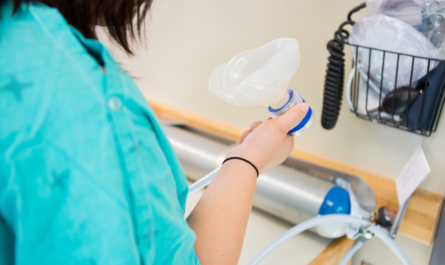Dental professionals must remind parents and guardians to stay engaged in their teens’ daily habits and food choices
 Children and early adolescents depend on their parents and guardians to instill positive habits that foster good health. By high school, as adolescents become increasingly independent in their daily habits and food choices, this continues to be an important time for adults to stay engaged, according to the International Association of Pediatric Dentistry (IAPD). The IAPD recommends the following for parents and guardians to keep teens on track with healthy teeth and bodies
Children and early adolescents depend on their parents and guardians to instill positive habits that foster good health. By high school, as adolescents become increasingly independent in their daily habits and food choices, this continues to be an important time for adults to stay engaged, according to the International Association of Pediatric Dentistry (IAPD). The IAPD recommends the following for parents and guardians to keep teens on track with healthy teeth and bodies
- Remind teens of the connection between good brushing habits and health, pleasant breath and good appearance. Brushing twice a day with fluoride toothpaste, flossing and using fluoride rinse are still the best measures to keep cavities away. Provide teens with different choices and encourage their use in a positive way. (As a general rule, teenagers who do not brush consistently twice a day, or do not brush well enough, snack several times during the day, eat or drink sweet snacks in between meals, have had cavities in the last two years, wear braces or retainers, or take medicine that makes their mouth dry, could benefit from having fluoride varnish applications well into adolescence.)
- Teenagers tend to gravitate towards drinking soda or energy drinks. Although most know that soda is not a good nutrition source, many are led to believe that energy drinks are a healthier choice. Most of these energy drinks have as many sweeteners as soda, which can lead to cavities and even weight gain. Remind them about the danger of drinking sweet beverages on a regular basis. Drinking plain milk and plain water are always the best options.
- As teenagers are able to purchase their own snacks, they need reminders that frequent snacking with chips or candy can also lead to cavities and weight gain. Obesity is prevalent in our society and good nutrition is important to stay healthy.
Many teens start to use mouthwash regularly, particularly as they become more interested in their personal hygiene. Teens and their parents/guardians should be aware that the use of mouthwash should not be a substitute for regular, good tooth brushing with fluoride toothpaste (including brushing the tongue, as it can contribute to a stale mouth odor.) When using a mouthwash, it is good to use one with fluoride or proven anti-plaque benefits.
Red gums
The gums around the lower teeth may become red and sometimes bleed easily when brushing. The main reason for this relates to improper cleaning of the teeth and gum-line. If the teeth are not straight, they may be more difficult to clean. The gums and teeth need to be brushed regularly at least twice daily with fluoride toothpaste. Dental flossing can help clear up the situation as the floss gets between the teeth and removes plaque from areas that the brush cannot reach. Parents and children can tell when the gums are getting healthier because the bleeding decreases and the gums become pink and hard. One special situation that should be mentioned is called pubertal gingivitis. This condition can persist even though the mouth appears well cleaned. It is due to the hormonal changes that occur in the body at puberty. It is usually a passing phase, and with persistent proper hygiene, the gums will eventually return to the healthy, pink color.
Brushing with braces
Cleaning the mouth while wearing braces takes longer and requires more effort. IAPD recommends teens with braces take the following steps to facilitate home care:
- Brush with a standard brush for regular cleaning and a special brush (small end-tufted brush) to clean around the hardware.
- Use special dental floss thread- ers, which enable cleaning between teeth that cannot be done with wires in place.
- Use a fluoride mouth rinse or fluoride gel daily. (Adolescents who wear braces are more prone to tooth decay.) Good hygiene during treatment with braces means a lesser chance of having to address gum problems and tooth decay when the braces are removed.
Teen trends
Face jewelry, such as tongue studs and lip rings, is a trend among some teenagers, and they and their parents/guardians should be aware that this can sometimes cause dental damage. Tongue studs, for example, can contribute to breakage of back teeth. Lip rings can get caught in clothing or elsewhere, causing the lip to tear. The jewelry needs to be well- cleaned as it often is in areas where infection can easily begin. Whenever these items or tattoos are put into the mouth, they should be done under the cleanest possible conditions.
For more information visit
www.iapdworld.org/main.php.





